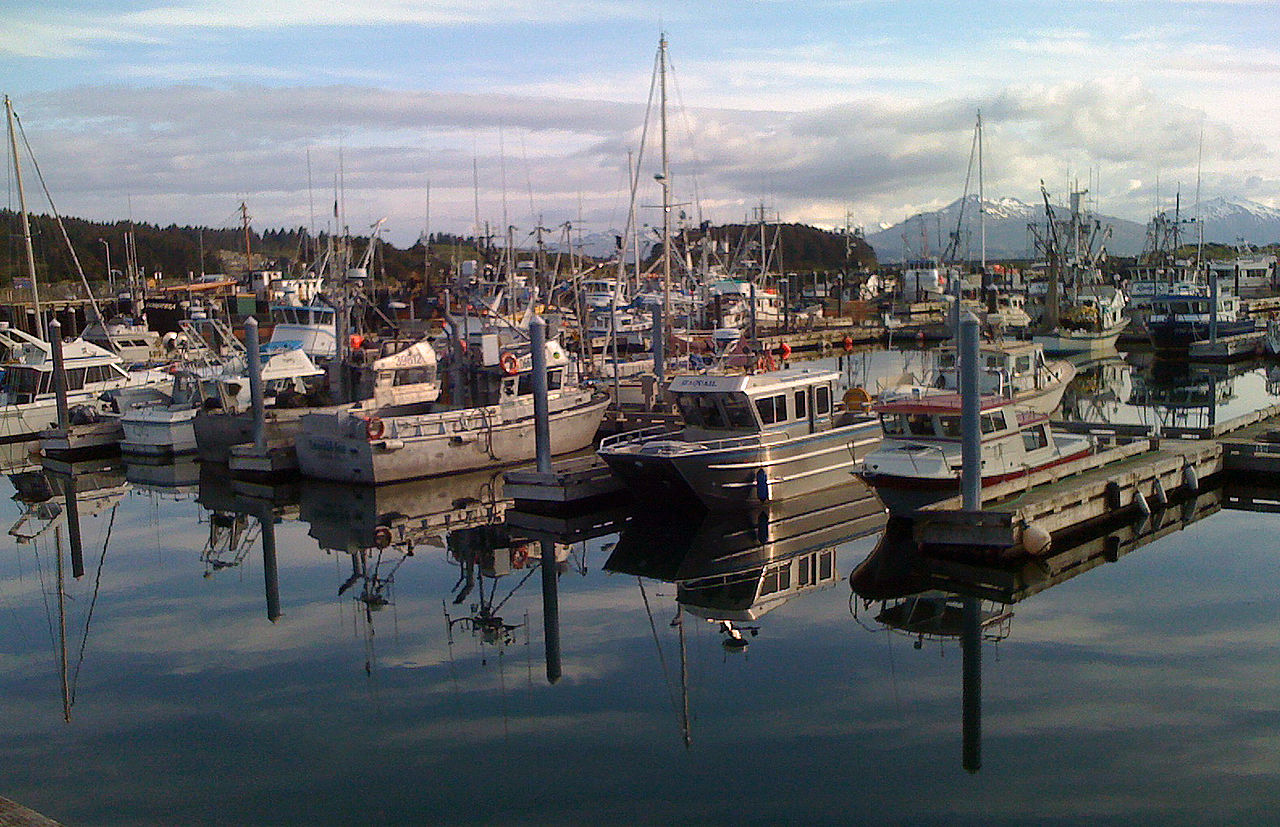A well-intended new Alaska law has gone awry from a botched rollout that has turned thousands of Alaskan fishing vessel, tender, barge and sport fish operators into lawbreakers.
Since the start of 2019, all vessels over 24 feet are required to be registered with the state at a Department of Motor Vehicles office. Previously, vessels that were documented with the Coast Guard were not required to also register with the state. The state registration costs $24 and is good for three years.
“You need to get down to the DMV whether you’re documented or not,” explained Frances Leach, executive director of United Fishermen of Alaska. “If you’re documented you have to register, and if you’re not documented, you have to register and get a title.”
The new rule stems from Senate Bill 92, the Derelict Vessels Act introduced last year by Sen. Peter Micciche (R-Soldotna) and passed by the Legislature. It is intended to help harbormasters and others track down owners of abandoned vessels.
But virtually no mariners know about the new registration requirement.
“We found out about it from a DMV personnel in Haines who told one of our gillnetters, and he told me. And we both called the troopers and they didn’t know anything about it,” said fisherman Max Worhatch of Petersburg. “Later they got back to us and said it was indeed the law.”
Worhatch, who is executive director of United Southeast Alaska Gillnetters, said he’s directed queries to the Departments of Administration and Public Safety.
“Why weren’t we notified?” he asked. “Nobody found out about this, and nobody would’ve found out about this if we hadn’t alerted people. There was no public notice, nothing.”
The new law states that a derelict vessel prevention program shall, to the extent that general funds are available, establish education and community outreach programs. But the only outreach is coming from fishermen’s groups, said UFA’s Leach in a June 18 letter to Department of Administration Commissioner Kelly Tshibaka.
“Since becoming aware of this new law in late May, UFA has been working with the Department of Motor Vehicles and State Wildlife Troopers to understand how they intend to implement the requirements of the law,” Leach wrote to Tshibaka. “We have notified thousands of fishermen of the law’s requirements through emails and social media posts. As far as we can tell, the commercial fishing industry, spearheaded by UFA, is the only sector actively working to inform commercial fishermen of the new requirements, even though this affects thousands of non-commercial fishing boat owners around the state. Who is informing them?”
UFA’s letter adds: “As fishermen attempt to comply with the law’s requirements, they are discovering that many DMV offices are not ready to deal with the onslaught of this new bill.”
Leach and Worhatch also point out that requiring vessel registration at a DMV adds an unnecessary layer of bureaucracy and is “reinventing the wheel.”
“All the information on the DMV registration is available on a public database website at the Commercial Fisheries Entry Commission website. Everything,” said Worhatch.
UFA, which represents 36 fishing groups, is requesting a one-year delay of the law “until all state agencies are better prepared and trained and adequate public notice and education are given prior to it going into effect.”
That has the support of Rep. Jonathan Kreiss-Tomkins (D-Sitka).
“Running the DMV gauntlet is the last thing fishermen need to be thinking about as salmon season heats up,” he said by email.
Kreiss-Tomkins voted against the new law, saying he was concerned that the bill, albeit well-intended and addressing all too real a problem, would create more paperwork than it would solutions.
“The fear about paperwork headaches is proving all too real,” he said, adding that it “makes heaps of sense” for the existing CFEC database to do “double duty” and relieve the DMV of those headaches.
“If sound legislation will be forthcoming to this end, I'll certainly support it.”
As to the botched rollout, Kreiss-Tomkins said: “There seems to be critical mass concern. Everyone — the fishermen, the agencies — is climbing a learning curve, so to some extent it's understandable. I just hope that this recent attention can help everyone get on the same sheet of music.”







